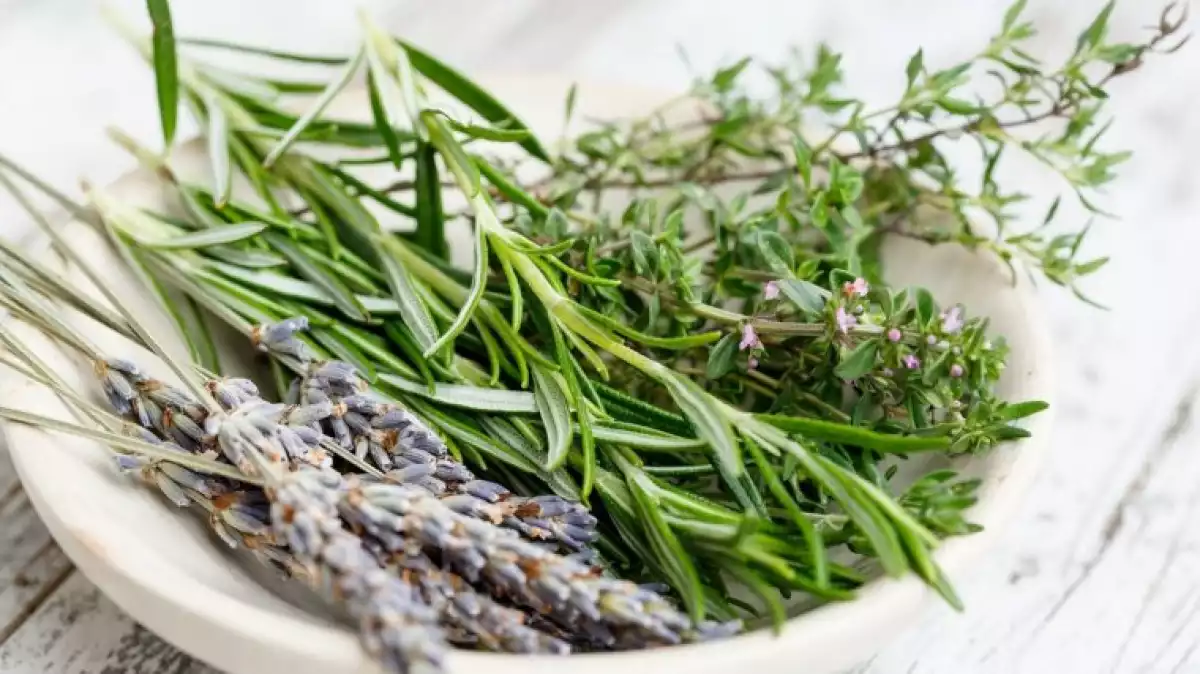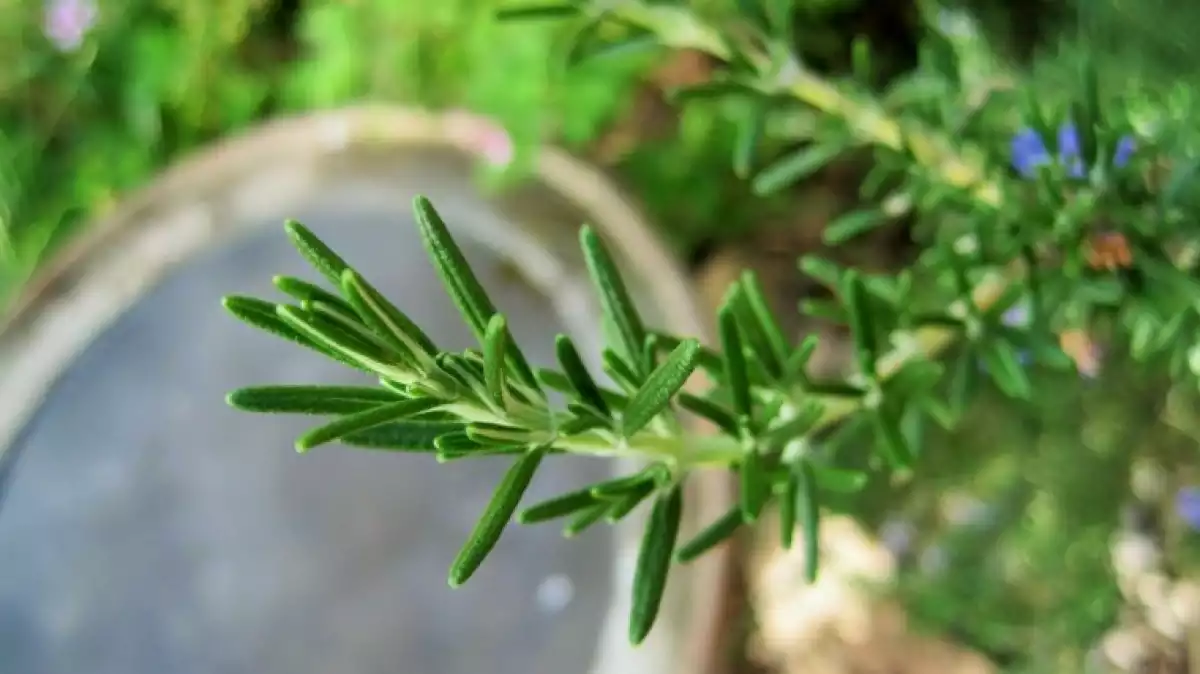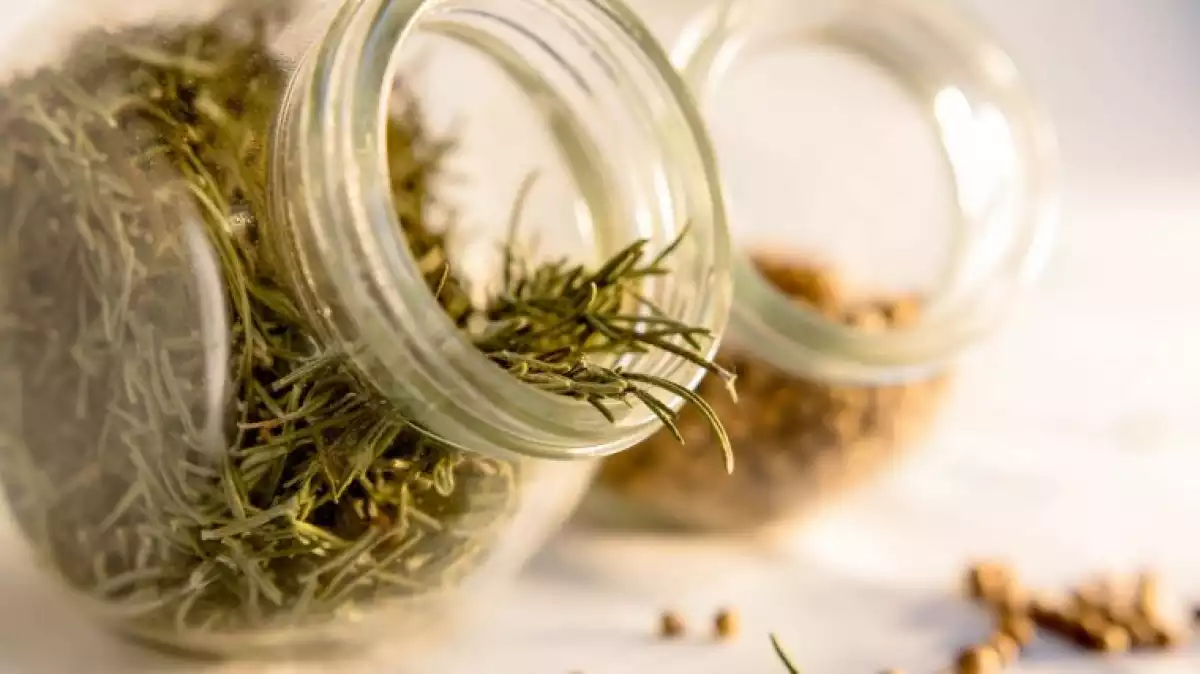
Among these plants, there is rosemary, an aromatic herb popular for its wide range of uses, both in gastronomy and traditional medicine. Therefore, this article will talk about rosemary, its uses and the main properties and benefits of this medicinal plant.
What is rosemary?
Rosemary, scientifically known as Rosmarinus officinalis, is a woody, perennial herb, with needle-like leaves that are evergreen and fragrant. This plant, native to the Mediterranean region, has small flowers of pink, purple, white or blue colour.
Its name derives from Latin and can be translated as “dew of the sea”. Besides, rosemary is one of the most popular aromatic herbs within the Mediterranean culinary traditions and nowadays, it can be found in almost any cuisine of the world.
This plant, a member of the mint family Lamiaceae, has a warm, bitter and slightly astringent taste. Nevertheless, it provides a delicious flavour and aroma to all kinds of recipes, such as roasts, stews, sauces or meets.
Another of the benefits of rosemary is its versatility. The leaves of this shrub can be eaten both fresh and dry, as well as in teas, alcohol or essential oil, among others.
Considered a sacred herb by ancient Romans, Greeks, Egyptians and Hebrews, rosemary has become increasingly popular in traditional medicine for its properties and health benefits.
Properties and health benefits of rosemary
As we have already mentioned, apart from its aroma, rosemary has a great number of properties that can provide different health benefits. For this reason, it is used for many therapeutic and nutritional purposes.
However, not all of these properties have been supported by scientific research. So, it is advisable to be cautious when determining their potential uses.

1. Antioxidant and anti-inflammatory properties
The rosemary herb is a great source of antioxidants and anti-inflammatory agents. According to research, this plant can improve blood circulation and also strengthen the neutralization of free radicals.
These chemicals are highly reactive elements that inject oxygen into the cells and cause oxidation, which accelerates the aging of the organism. So, inhibiting its action delays this process.
2. Antibacterial properties
The antibacterial and antimicrobial properties of rosemary have turned it into one of the main medicinal plants used within the Mediterranean culture.
This herb is highly effective against bacterial infections and it has been closely related to the prevention of staph infections.
3. Boosts immunity
All the active components of rosemary that were previously mentioned (antioxidants, anti-inflammatory and antibacterial agents) help the correct functioning of the immune system, boosting their action on those pathogens that can become a threat to your health.
4. Reduces Cough
Rosemary leaves are able to remove the phlegm and mucus from the respiratory system. This provides relief against cough in catarrhal processes, colds, flu and even as an adjuvant treatment of asthma.
Besides, the rosmarinic acid of this herb can be very effective against any kind of fluid accumulation in the lungs.

5. Reduces Stress
According to the principles of aromatherapy, the different scents of essential oils can, among other things, be beneficial to your psychological state.
In view of this, it is known that the aroma of rosemary is associated with stress-reducing and relaxing effects in people with symptoms of anxiety and/or depression. This may be due to the fact that this herb reduces the levels of cortisol, which helps ease tension.
6. Protects against neural damage
The rosemary plant contains a substance known as carnosic acid, which has neuroprotective properties. This means that rosemary could help reduce oxidative stress and overstimulation in nerve cells, which ultimately protects the nervous system.
Moreover, there are studies which suggest that one of the properties of rosemary is to protect certain brain areas from damage, such as ischemic injury.
7. Prevents brain ageing
Some studies expose that rosemary can significantly help prevent brain ageing.
Although it is still being investigated, there are hypotheses that rosemary can prevent the formation of beta-amyloid plaques and suppress acetylcholinesterase, which are two of the main causes of Alzheimer’s disease.
8. Detoxifies the liver
Eating this plant has also been associated with lower levels of cirrhosis and a faster healing time of the liver.
Besides, rosemary can reduce plasma liver enzymes, which may cause type-2 diabetes.
9. Skin care
The antioxidant agents found in rosemary essential oils may help improve the quality of the skin.
Thanks to these antioxidants, the common products made from rosemary extract have a strong anti-aging effect, improve the healing of blemishes and increase the natural shine of the skin.
10. Hair growth
Finally, rosemary oil benefits hair growth. Its active agents promote hair growth, prevent baldness, slow graying, treat dandruff and turn it into a strong astringent, which prevents oily scalp.
Check out the original article: Romero (Rosmarinus officinalis): 10 propiedades y beneficios at viviendolasalud.com
References:
Hügel, H. M. (2015). Brain food for Alzheimer-free ageing: Focus on herbal medicines. Advances in experimental medicine and biology, 863, 95-116.
Peng, C. H., Su, J. D., Chyau, C. C., Sung, T. Y. Ho, S. S., Peng, C. C. & Peng, R. Y. (2007). Supercritical fluid extracts of rosemary leaves exhibit potent anti-inflammation and anti-tumor effects. Bioscience, Biotechnology, And Biochemistry, 71(9), 2223-2232.
Seyedemadi, P., Rahnema, M., Bigdeli, M. R., Oryan, S., & Rafati, H. (2016). The neuroprotective effect of rosemary. Hydro-alcoholic extract on cerebral ischemic tolerance in experimental stroke. Iranian Journal of Pharmaceutical Research, 15(4), 875-883.
